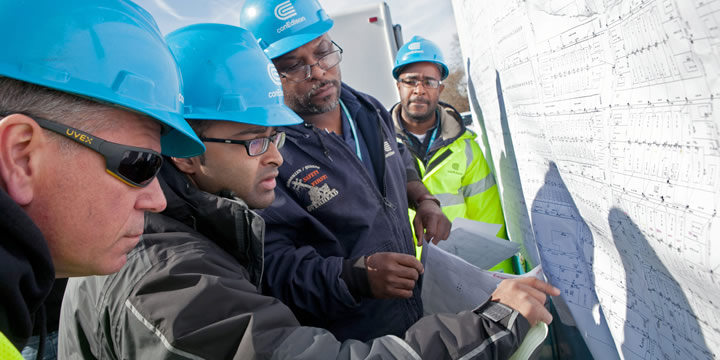Climate Change Risk Issues

Con Edison acknowledges the statements of the Intergovernmental Panel on Climate Change that emissions of greenhouse gases, including carbon dioxide, are very likely changing the world's climate. We recognize that climate change could impact our customer's demand for energy services and has the potential to cause physical damage to our facilities and disruption of their operations due to the impact of more frequent and more extreme weather-related events.
In response to the risks posed by climate change, we have taken strides to mitigate our impact to the environment, decreasing our greenhouse gas emissions 45 percent from our 2005 baseline. This reduction was achieved through equipment replacement and repair, increased use of natural gas at our steam generation plants, and operational changes in the dispatching of electric generation at our East River Facility. Our methane emissions are reduced through pipe maintenance and replacement programs, by operating system components at lower pressure, and by introducing new technologies. We have been able to reduce emissions of sulfur hexafluoride, which is used for arc suppression in substation circuit breakers and switches, by using improved technologies to locate and repair leaks, and by replacing older equipment.
We also work to help our customers reduce their environmental impact through our energy efficiency programs. These are outlined in the Our Customers section of this report.
While we recognize the importance of mitigation activities, we are also working to address climate adaptation opportunities. In late October 2012, Superstorm Sandy caused extensive damage to the utilities’ electric distribution system. Superstorm Sandy interrupted service to approximately 1.4 million of the utilities’ customers - more than four times the number of customers impacted by the companies’ previous worst storm event (Hurricane Irene in 2011). In response, we have developed an extensive plan to prepare our systems to handle storms of this nature. The impact and response to Sandy is discussed in more detail in the Reliability section of this report.
